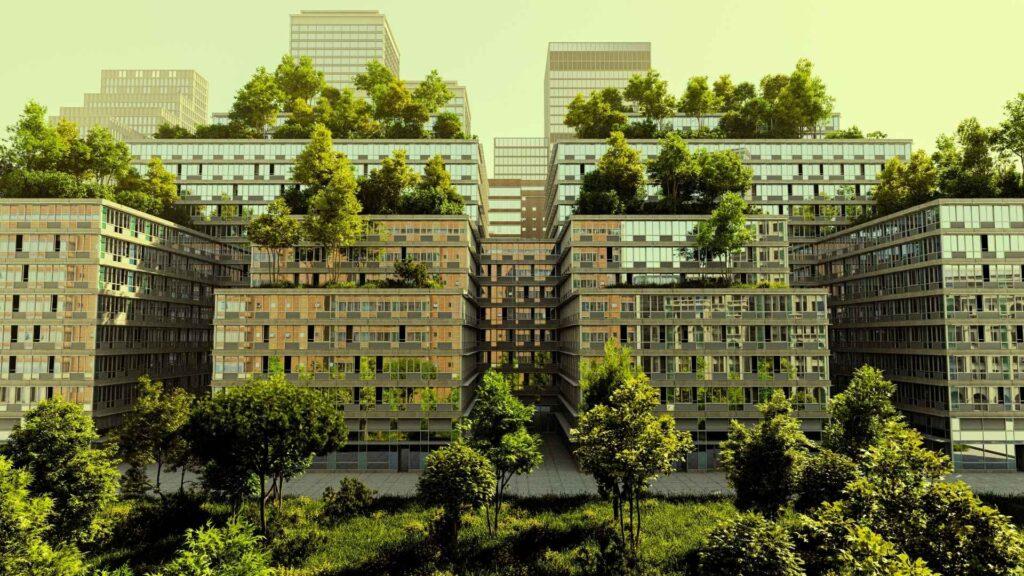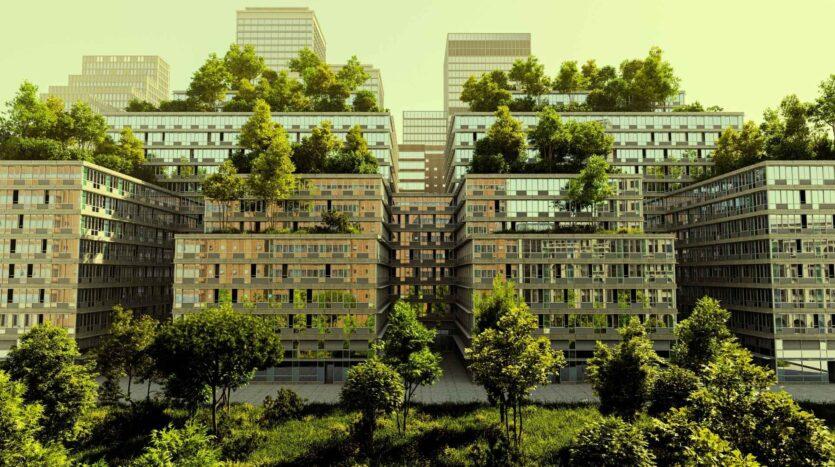The Future of Real Estate: Trends and Predictions
The real estate game is getting a serious makeover! Tech is taking over, buyers’ preferences are shifting, and the industry is evolving at lightning speed. Ever toured a house in your pajamas with VR? Or wondered if your next property deal could be powered by blockchain? Yep, it’s happening. Plus, with remote work and sustainability on the rise, everything from office space to green homes is in demand. Whether you’re in the market to buy, sell, or invest, buckle up… the future of real estate is entering a whole new era, and it’s full of surprises! Let’s dive into the trends shaking things up.
The Rise of Technology in Real Estate
Technology is transforming the real estate industry in unprecedented ways, creating new opportunities and efficiencies for both buyers and sellers.
Virtual Reality (VR) and Augmented Reality (AR) in Real Estate

Imagine being able to walk through a property from the comfort of your home. VR and AR allow potential buyers to virtually tour properties, offering a fully immersive experience. These technologies also enable buyers to visualize potential renovations, see how furniture might look in a space, or explore different design options without physically being there. This not only saves time but also helps create a more personalized buying experience.
Blockchain in Real Estate

Blockchain technology is revolutionizing real estate transactions by providing a secure and transparent platform. Traditionally, real estate deals involve multiple intermediaries, leading to delays and extra costs. With blockchain, transactions can be completed directly between parties, ensuring transparency and security. Blockchain also introduces smart contracts, which automatically execute based on predefined conditions. Additionally, fractional ownership through blockchain is gaining popularity, allowing investors to own small portions of large properties.
AI-Powered Tools in Real Estate

Artificial intelligence (AI) is bringing efficiency to various real estate tasks. From predicting property valuations to analyzing market trends, AI tools can process vast amounts of data to offer accurate insights. Personalized recommendations based on buyer preferences are also a key feature, helping real estate agents and platforms tailor offerings to individual needs, streamlining the buying process.
Changing Demographics in Real Estate
Demographic shifts are reshaping the types of properties in demand and influencing urban development patterns.

- Aging Population: As baby boomers age, the demand for senior living communities and age-friendly homes is on the rise. This demographic seeks properties with accessibility features, proximity to healthcare facilities, and communities designed for older adults. Assisted living facilities and retirement homes are also expanding to meet the needs of this growing population.
- Urbanization: Cities are growing rapidly as more people move to urban areas in search of job opportunities, entertainment, and a vibrant lifestyle. Urban housing, mixed-use developments, and commercial properties are in high demand. Developers are focusing on creating more compact, vertical housing solutions to accommodate the growing urban population, leading to the rise of micro-apartments and co-living spaces.
- Millennials and Gen Z: These younger generations have distinct preferences compared to previous generations. They prioritize walkable neighborhoods, access to public transportation, and flexible workspaces. Sustainability and eco-friendly living are also key factors for millennials and Gen Z, leading to increased demand for green buildings and energy-efficient homes. Developers are responding by creating more adaptable spaces and focusing on sustainability in their projects.
Economic Factors in Real Estate
The real estate market is closely tied to broader economic trends, and fluctuations in these factors can impact buying and selling behaviors.

- Interest Rates: Interest rates play a crucial role in the affordability of homes. When interest rates are low, borrowing becomes cheaper, leading to increased home buying activity. Conversely, rising interest rates can make mortgages more expensive, slowing down demand. Buyers and sellers must closely monitor these trends to make well-timed decisions in the market.
- Job Market: A strong job market translates into greater demand for housing and commercial real estate. When employment is high, more people can afford to purchase homes or rent office spaces. Economic uncertainty, however, may lead to delayed purchasing decisions as people wait for more stable conditions before committing to large investments like property.
- Economic Growth: A healthy, growing economy typically leads to real estate appreciation. As businesses expand, the demand for commercial properties rises, and as household incomes grow, people are more likely to invest in homes. However, economic downturns can reduce demand, lead to falling property values, and affect real estate investment returns.
Sustainability and Green Building in Real Estate
With environmental concerns gaining traction, sustainability is becoming a key priority for developers, buyers, and regulators.

- Energy-Efficient Homes: Today’s consumers are more environmentally conscious, seeking homes that help reduce their carbon footprint. Energy-efficient designs and features like solar panels, energy-saving appliances, and improved insulation are becoming must-haves. Not only do these features reduce environmental impact, but they also help homeowners save on energy costs in the long run.
- Green Building Standards: Certifications like LEED (Leadership in Energy and Environmental Design) are setting benchmarks for sustainable construction practices. These standards promote the use of eco-friendly materials, waste reduction, water conservation, and energy efficiency. Green buildings not only benefit the environment but also attract environmentally-conscious buyers willing to pay a premium for eco-friendly features.
- Renewable Energy: The integration of renewable energy sources such as solar panels and wind turbines into real estate developments is growing. This trend is particularly strong in both commercial and residential projects, as developers and property owners look to reduce energy costs and comply with environmental regulations. Renewable energy solutions are helping properties achieve sustainability goals, while also appealing to eco-conscious buyers and tenants.
Remote Work and Co-Working Spaces in Real Estate
The rise of remote work, accelerated by the COVID-19 pandemic, has transformed the office space landscape and impacted real estate demand.

- Flexible Workspaces: As companies move away from traditional long-term office leases, flexible workspaces such as co-working spaces are gaining popularity. These shared spaces offer businesses the flexibility to adjust their office space needs as their workforce fluctuates, making them cost-effective and adaptable.
- Hybrid Work Models: Many companies are adopting hybrid work models, allowing employees to split their time between working remotely and coming into the office. This trend is reshaping the demand for office space, with a focus on smaller, flexible spaces that support collaboration when needed but also accommodate a remote workforce.
- Suburban Office Boom: As more people move away from cities to suburban areas, there is a growing demand for suburban office spaces. Companies are setting up satellite offices closer to residential neighborhoods, providing employees with convenient workspaces without the long commute. This shift is contributing to the rise of mixed-use developments in suburban areas that combine residential, commercial, and office spaces.
Conclusion
The real estate industry is undergoing significant transformations, influenced by technology, changing demographics, economic conditions, and evolving work environments. Staying informed about these trends is essential for buyers, sellers, and investors to navigate the ever-evolving landscape of real estate.
Frequently Asked Questions
How is technology transforming the real estate industry?
What is the role of virtual reality (VR) in real estate?
How does blockchain impact real estate transactions?
How are AI tools used in real estate?
What are the key real estate trends driven by changing demographics?
How do economic factors like interest rates affect the real estate market?
What are the latest sustainability trends in real estate?
How has remote work impacted the demand for office spaces?
Why are Millennials and Gen Z influencing real estate trends?
How is the real estate industry adapting to sustainable building practices?
Investing in real estate can come with various risks, from market fluctuations to property management challenges. At Hari Hara Properties, we ensure that all your property needs are fully taken care of, offering expert guidance and management. With us, you can invest with confidence, knowing that your real estate journey is backed by a team dedicated to minimizing risks and maximizing returns.








